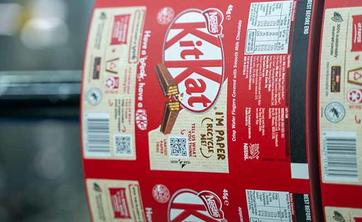Our approach

Nestlé is committed to developing products that are good for you and good for the planet. Our purpose is to unlock the power of food to enhance quality of life for everyone, today and for generations to come.
Creating Shared Value (CSV) is the way we set out to achieve that purpose. It is an approach to business that seeks to be good for us, our shareholders, society and the planet.
A climate-centered approach
The climate crisis is exacerbating the global food crisis. An unsustainable food system – responsible for up to a third of the world’s emissions – is making the problem worse. We must continue to accelerate the shift to a better way of nourishing our growing planet, equitably, affordably, and sustainably.
We aim to halve our carbon footprint by 2030. To achieve that, we’re transforming every aspect of our business – from converting our trucks to alternative fuels and our factories to renewable electricity to introducing packaging that uses less plastic and can be more easily recycled and reused.
Our approach is holistic and interconnected, built on our commitment to achieving net zero greenhouse gas emissions by 2050 at the latest, while putting people at the center of everything we do.
Advancing regenerative food systems at scale
Our intention to advance regenerative food systems at scale marks a profound development in our thinking. We recognize there is a clear and urgent need for us to show leadership in setting this new path for our business.
Each word in this phrase is important and addresses how we are accelerating our activities:
- Advance by raising our voice and using our influence to drive progress, in collaboration with others
- Regenerative to help protect, renew and restore farmland and landscapes
- Food systems encompassing every actor, activity, process and product involved in growing, raising, making, delivering and consuming food
- At scale because the planet, communities and individuals need global, systems-level change
Transforming food and agriculture for a sustainable future
By advancing regenerative food systems and working with farmers to help them transition to regenerative agricultural practices, we can help create a more resilient future for our planet and its people.
Contributing to nutritious and sustainable diets
We aim to enhance quality of life for people, families and pets with accessible, nutritious and sustainable options. We leverage our decades of experience and our R&D expertise to offer safe, affordable, sustainable, high-quality products for people everywhere and across all life stages. We are determined to develop products that are good for you and good for the planet.

Supporting a just transition
The aim is to provide resilient and fair livelihoods and dignified work that enable farming communities across the world to support themselves and their families. The path to regenerative agriculture is long. This is why we are helping farmers by providing financial support where needed, remunerating good practices and offering technical and scientific guidance. This approach and the respect and promotion of human rights is designed to contribute to a just transition to new practices throughout our supply chains.
Partnerships for change
Advancing regenerative food systems is about co-creating a resilient future for our planet and its people, working to nurture communities, improving the livelihoods of our partners and the well-being of our consumers, and revitalizing natural ecosystems. The effort requires understanding and support from all actors involved, from governments and NGOs to peer companies and competitors, financial institutions and commodity traders. We all have a part to play in helping make regenerative food systems a reality.

Benefitting people, nature and the climate
Our planet’s forests, water, soil and carbon storage are intrinsically linked. By considering all these factors, along with respect for human rights and livelihoods, we can play our role in advancing regenerative food systems at scale.
Download the full infographic (pdf, 1Mb)
Regenerative food systems are not aspirational, they are pragmatic. They benefit the entire supply chain, the whole of the company, and all of global society.







